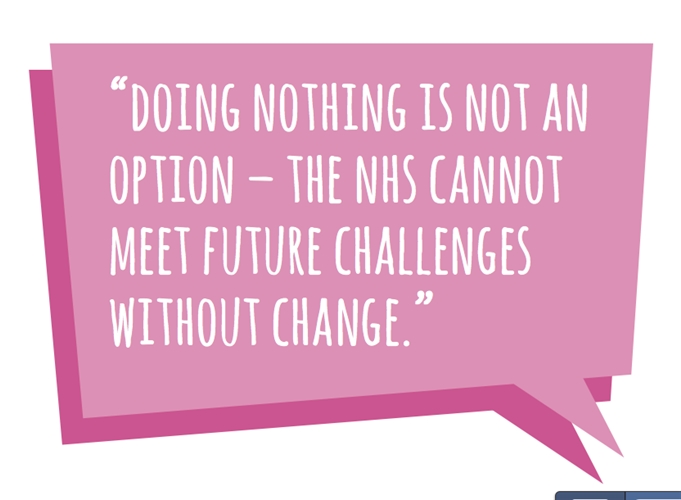Every day the NHS saves lives and helps people stay well. It is easy to forget that only
65 years ago many people faced choosing between poverty if they fell seriously ill or
forgoing care altogether. Over the decades since its inception the improvements in
diagnosis and treatment that have occurred in the NHS have been nothing short of
remarkable. The NHS is more than a system; it is an expression of British values of fairness, solidarity and compassion.
However, the United Kingdom still lags behind internationally in some important areas, such as cancer survival rates.1 There is still too much unwarranted variation in care across the country, exacerbating health inequalities. As the Mid-Staffordshire and Winterbourne View tragedies demonstrated, in some places the NHS is badly letting patients down and this must urgently be put right.
But improving the current system will not be enough. Future trends threaten the sustainability of our health and care system: an ageing population, an epidemic of
long-term conditions, lifestyle risk factors in the young and greater public expectations. Combined with rising costs and constrained financial resources, these trends pose the greatest challenge in the NHS’s 65-year history.
The NHS has already implemented changes to make savings and improve productivity. The service is on track to find £20 billion of efficiency savings by 2015. But these alone are not enough to meet the challenges ahead. Without bold and transformative change to how services are delivered, a high quality yet free at the point of use health service will not be available to future generations. Not only will the NHS become financially unsustainable, the safety and quality of patient care will decline.
In order to preserve the values that underpin it, the NHS must change to survive. Change does not mean top-down reorganisation. It means a reshaping of services to put patients at the centre and to better meet the health needs of the future. There are opportunities to improve the quality of services for patients whilst also improving efficiency, lowering costs, and providing more care outside of hospitals. These include refocusing on prevention, putting people in charge of their own health and healthcare, and matching services more closely to individuals’ risks and specific characteristics. To do so, the NHS must harness new, transformational technology and exploit
the potential of transparent data as other industries have. We must be ready and able to share these data and analyses with the public and to work together with them to design and make the changes that meet their ambitions for the NHS.
So this document is a ‘Call to Action’ – a call to those who own the NHS, to all who use and depend on the NHS, and to all who work for and with it. Building a common understanding of the challenges ahead will be vital in order to find sustainable solutions for the future. NHS England, working with its partners, will shortly launch a sustained programme of engagement with NHS users, staff and the public to debate the big issues and give a voice to all who care about the future of our National Health Service. This
programme will be the broadest, deepest and most meaningful public discussion
that we have ever undertaken.
Bold ideas are needed, but there are some options we will not consider. First, doing nothing is not an option – the NHS cannot meet future challenges without change. Second, NHS funding is unlikely to increase; it would be unrealistic to expect
anything more than flat funding (adjusted for inflation) in the coming years. Third, we will not contemplate cutting or charging for core NHS services – NHS England is governed by the NHS Constitution which rightly protects the principles of a comprehensive
service providing high quality healthcare, free at the point of need for everyone.
The Call to Action will not stifle the work that clinical commissioning groups and their partners have already accomplished. It is intended to complement this work
and lead to five-year commissioning plans owned by each CCG. The Call to Action will also shape the national vision, identifying what NHS England should do to drive service change. This programme of engagement will provide a long-term approach to
achieve goals at both levels.
The NHS belongs to all of us. This Call to Action is the opportunity for everyone who
uses or works in the NHS to have their say on its future.
